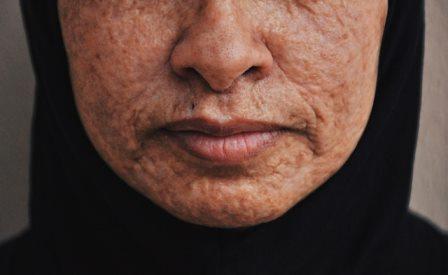Acne Scars Treatment Guide
Table of Contents
- Acne Scars Treatment Guide
- What are Acne Scars?
- What are the Types of Acne Scars?
- How do I Prevent Acne Scars and Pimple Marks?
- How do I Know if my Face is Scarring?
- Home Remedies for Acne Scars and Pimple Marks
- How do I Cover-up Pimple Marks on Face?
- What Treatments are Available for Acne Scars?
- Is Laser Treatment Safe for Acne Scars?

Acne Scars Treatment Guide
Acne is a common skin condition that affects millions of people worldwide. It is characterized by the formation of pimples, blackheads, whiteheads, and cysts on the face, neck, chest, back, and shoulders. While acne can be frustrating enough on its own, it can leave behind unsightly scars and pimple marks that can last for years if left untreated.
What are Acne Scars?
Acne scars are the result of inflamed lesions caused by acne. When the skin pores become clogged with oil, dead skin cells, and bacteria, it can result in an inflammatory response that causes damage to the skin tissue. This damage can result in the formation of scars that are visible on the surface of the skin.
What are the Types of Acne Scars?
There are several types of acne scars, including:
- Ice pick scars: These scars are small and deep, with a narrow opening at the skin’s surface. They are typically caused by severe acne, such as cystic acne.
- Boxcar scars: These scars are round or oval depressions in the skin with steep vertical sides. They are often caused by inflammatory acne.
- Rolling scars: These scars are broad depressions in the skin with sloping edges. They are often caused by long-term inflammatory acne.
- Hypertrophic scars: These scars are raised, red, and firm. They are often caused by severe inflammatory acne.
How do I Prevent Acne Scars and Pimple Marks?
Preventing acne scars and pimple marks requires careful attention to your skin care routine. Here are some tips:
- Cleanse your skin twice a day with a gentle cleanser to remove excess oil, dirt, and bacteria.
- Avoid picking or squeezing pimples, as this can lead to scarring.
- Wear sunscreen daily to protect your skin from UV damage, which can exacerbate acne and lead to scarring.
- Use non-comedogenic skincare and makeup products to prevent clogged pores.
How do I Know if my Face is Scarring?
Acne scars are typically visible on the surface of the skin, but you may also notice changes in skin texture and color. Scars may appear as pits, depressions, or raised areas on the skin. They may also be red or purple in color, and the skin may feel rough or bumpy to the touch.
Home Remedies for Acne Scars and Pimple Marks
There are several home remedies that may help reduce the appearance of acne scars and pimple marks. Here are a few:
- Aloe vera: Apply aloe vera gel to the affected areas to soothe the skin and promote healing.
- Lemon juice: Apply fresh lemon juice to the affected areas to lighten the skin and reduce the appearance of scars.
- Honey: Apply raw honey to the affected areas to soothe the skin and promote healing.
- Tea tree oil: Apply diluted tea tree oil to the affected areas to reduce inflammation and promote healing.
How do I Cover-up Pimple Marks on Face?
If you want to cover up pimple marks on your face, there are several makeup products that can help. Here are some tips:
- Use a color-correcting primer to neutralize redness.
- Apply a full-coverage foundation to even out skin tone.
- Use a concealer that matches your skin tone to cover up individual marks.
- Finish with a setting powder to keep everything in place.
What Treatments are Available for Acne Scars?
If home remedies and makeup aren’t enough to reduce the appearance of acne scars, there are several treatments available. Here are a few:
- Chemical peels: This treatment involves applying a chemical solution to the skin to remove the top layer of skin and promote the growth of new, smoother skin.
- Microdermabrasion: This treatment involves using a special tool to exfoliate the skin and remove the top layer of dead skin cells, promoting the growth of new skin.
- Dermal fillers: This treatment involves injecting a filler substance into the skin to fill in depressed scars and improve the overall appearance of the skin.
- Laser therapy: This treatment involves using a laser to resurface the skin and promote the growth of new, smoother skin.
Is Laser Treatment Safe for Acne Scars?
Laser treatment for acne scars is generally considered safe when performed by a qualified and experienced dermatologist. However, as with any medical procedure, there are potential risks and side effects to consider, such as redness, swelling, and scarring.
It’s important to discuss the risks and benefits of laser therapy with your dermatologist before deciding if it’s the right treatment for you.
In conclusion, acne scars and pimple marks can be a frustrating and unsightly side effect of acne. However, with proper skin care, home remedies, makeup, and professional treatments, you can reduce the appearance of scars and improve the overall appearance of your skin. Remember to always consult with a qualified dermatologist before starting any new treatment regimen to ensure the safety and effectiveness of the treatment.
